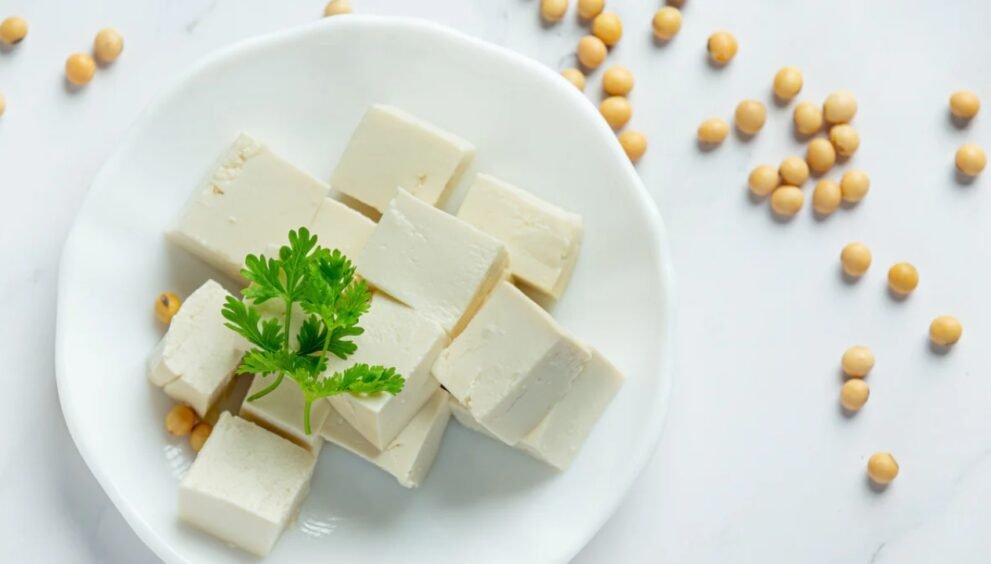Exploring The Paneer Nutritional Benefits: A Healthy Addition to Your Diet

Paneer, a type of fresh cheese that is a staple in many Indian and South Asian dishes, has gained popularity worldwide for its creamy texture and versatility. Often hailed as a “vegetarian’s protein,” paneer is not just a delicious ingredient in curries and salads but also offers numerous health benefits. Its rich nutrient profile makes it a favorite among fitness enthusiasts, vegetarians, and those looking to maintain a balanced diet. In this blog, we’ll delve deep into paneer nutrition, its health benefits, and how it can be a valuable part of your diet.
What is Paneer?
Paneer, also known as Indian cottage cheese, is made by curdling milk with lemon juice or vinegar and then draining the whey. The result is a soft, fresh cheese that is typically unsalted. Unlike many cheeses, paneer is not aged or fermented, which gives it a mild taste and firm texture, making it ideal for cooking. It is commonly used in various cuisines, especially in India, where it is featured in dishes like paneer tikka, palak paneer, and mattar paneer.
Paneer Nutrition: A Nutrient-Rich Food
When it comes to paneer nutrition, it’s packed with essential macronutrients and micronutrients, making it a great addition to any diet. Here’s a breakdown of the key nutrients in paneer:
- Protein: Paneer is an excellent source of protein, especially for those on a vegetarian diet. A 100-gram serving of paneer provides around 18 grams of protein, making it an effective choice for muscle repair and growth. Protein is crucial for the body as it helps in the repair of tissues, immune function, and enzyme production.
- Fat Content: Paneer is rich in healthy fats, with a 100-gram serving providing about 20 grams of fat. While this may seem high, most of the fats in paneer are saturated fats, which can be beneficial in moderation. It helps in maintaining healthy skin, brain function, and hormone regulation.
- Carbohydrates: Paneer is a low-carb food, making it suitable for those following a low-carb or ketogenic diet. The carbohydrate content in 100 grams of paneer is minimal, which makes it a great option for maintaining steady energy levels without spikes in blood sugar.
- Calcium and Phosphorus: Paneer is an excellent source of calcium, which is essential for maintaining strong bones and teeth. A 100-gram serving of paneer contains about 200-250 milligrams of calcium. It also provides a significant amount of phosphorus, which plays a role in energy production, muscle function, and bone health.
- Vitamins and Minerals: Paneer is rich in several essential vitamins and minerals, including vitamin B12, riboflavin, and vitamin A. Vitamin B12 is crucial for nerve function and red blood cell production, while riboflavin helps in the body’s energy production processes. Vitamin A contributes to vision health and immune function.
Health Benefits of Paneer
Incorporating paneer into your diet can offer numerous health benefits, thanks to its rich nutrient profile. Let’s explore some of the primary advantages of eating paneer regularly:
1. Supports Muscle Growth and Repair
Given its high protein content, paneer is an excellent food choice for individuals looking to build or maintain muscle mass. Protein is vital for muscle repair after workouts, and paneer offers a readily available source of this nutrient. For vegetarians, it serves as an effective substitute for meat-based proteins like chicken or beef.
2. Aids Weight Management
Despite its rich fat content, paneer can be beneficial for weight management. The combination of high protein and healthy fats helps keep you feeling fuller for longer, which can reduce overall calorie intake and prevent overeating. Additionally, its low carbohydrate content makes it a great food choice for those following low-carb or keto diets.
3. Promotes Bone Health
Paneer is an excellent source of calcium, which is vital for bone health, especially in growing children and aging adults. Regular consumption of paneer can help maintain bone density and prevent conditions like osteoporosis. The phosphorus content also works synergistically with calcium to support strong, healthy bones.
4. Boosts Immune Function
The high vitamin and mineral content in paneer, especially vitamin B12 and vitamin A, supports a healthy immune system. Vitamin B12 helps in the formation of red blood cells and strengthens immune responses, while vitamin A is a powerful antioxidant that helps the body fight infections.
5. Supports Digestive Health
Paneer contains probiotics, which are beneficial bacteria that support gut health. A healthy gut microbiome is essential for proper digestion and absorption of nutrients. Regular consumption of paneer can help maintain a balanced gut flora, which can lead to improved digestion and better overall health.
Paneer vs Other Dairy Products
While paneer offers an impressive array of nutritional benefits, how does it compare to other common dairy products like cheese and yogurt?
- Paneer vs Cheese: While both paneer and cheese are dairy-based, paneer is generally lower in fat and sodium compared to many cheeses, making it a healthier option for individuals looking to reduce their sodium intake. Paneer also lacks the fermentation process that many cheeses undergo, making it more suitable for those who are sensitive to aged dairy products.
- Paneer vs Yogurt: Both paneer and yogurt are rich in calcium and protein, but paneer has a much higher protein content than yogurt. However, yogurt contains probiotics, which are beneficial for digestive health. Combining paneer with yogurt can provide a balance of both protein and probiotics in your diet.
How to Incorporate Paneer into Your Diet
Paneer’s versatility makes it easy to incorporate into a variety of dishes. Whether you’re cooking for breakfast, lunch, or dinner, there are countless ways to add this nutritious cheese to your meals. Here are some ideas:
- Paneer Tikka: A popular Indian appetizer, paneer tikka is made by marinating cubes of paneer in yogurt and spices, then grilling them until they are charred and crispy. It’s a great high-protein snack.
- Paneer Curries: Paneer is often used in vegetarian curries such as palak paneer (spinach curry) or mattar paneer (paneer with peas). These dishes are flavorful and nutritious, providing a good mix of protein, fiber, and essential vitamins.
- Salads and Wraps: Add cubes of paneer to your salads for an extra protein boost. Paneer also works well in wraps, either on its own or mixed with vegetables for a wholesome meal.
- Paneer Sandwiches: For a quick and filling meal, try a grilled paneer sandwich. Spread a bit of yogurt, add some herbs, and layer with paneer slices for a delicious, protein-packed sandwich.
Expert Opinion on Paneer Nutrition
Dr. Emily Stone, a nutritionist and dietitian at Healthy Living Clinic, states, “Paneer is an excellent source of protein, especially for those who follow a vegetarian or plant-based diet. It provides a balanced mix of nutrients, including calcium and healthy fats, making it a great option for overall health. As with any food, moderation is key, but paneer can certainly be a beneficial addition to a well-rounded diet.”
Conclusion: The Nutritional Power of Paneer
In conclusion, paneer is much more than just a tasty addition to your meals—it’s a nutrient-dense food that offers a variety of health benefits. Packed with protein, calcium, and essential vitamins, paneer can support muscle growth, bone health, and digestive function. Whether you’re a vegetarian, a fitness enthusiast, or someone simply looking to improve your diet, paneer is a versatile and healthy food that deserves a place on your plate.
By incorporating paneer into your daily meals, you can enjoy its numerous health benefits while savoring the rich flavors it adds to your dishes. Whether in curries, sandwiches, or salads, paneer nutrition is a powerful tool in maintaining a healthy, balanced lifestyle.








































































































































































































































































































































































































































































































